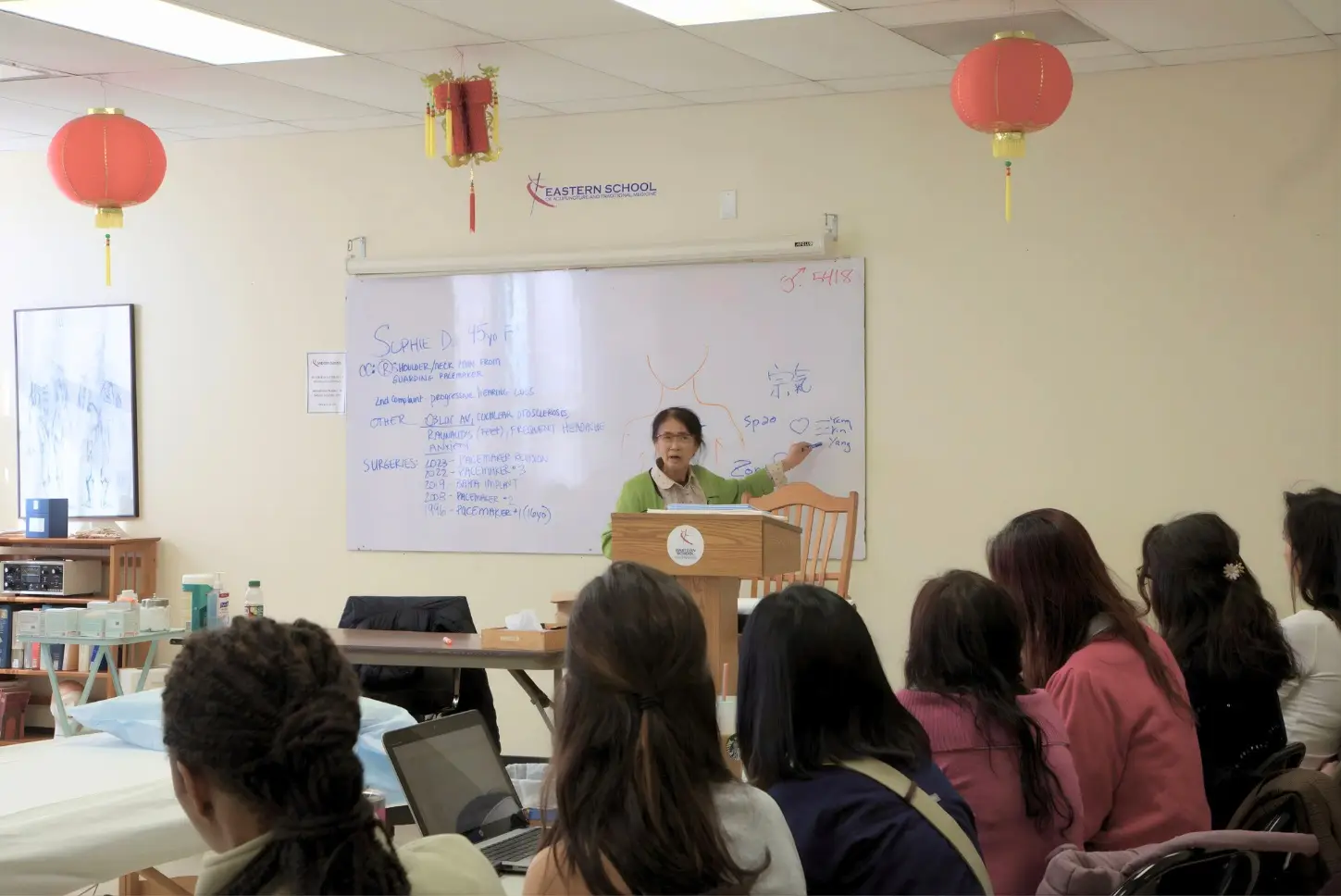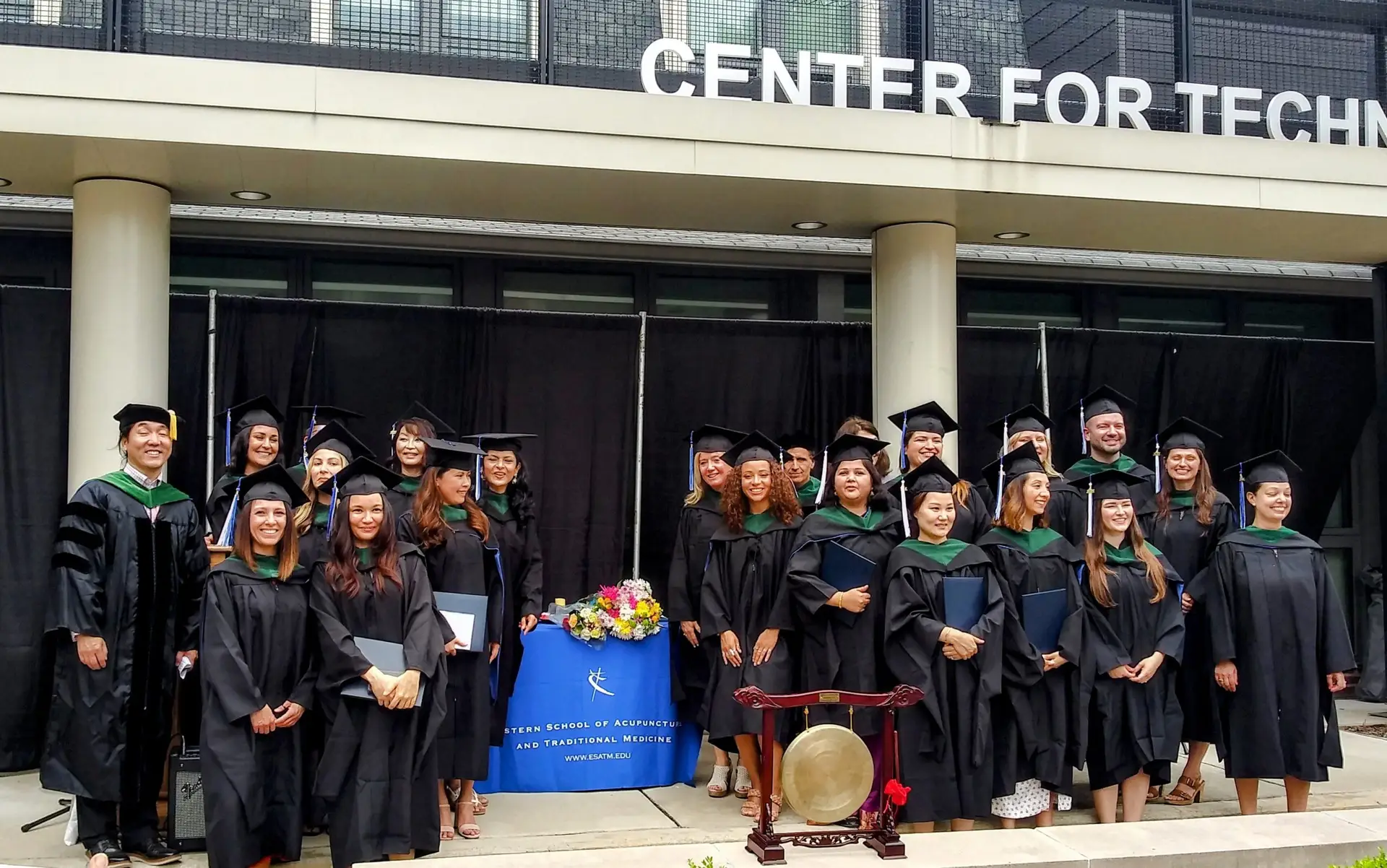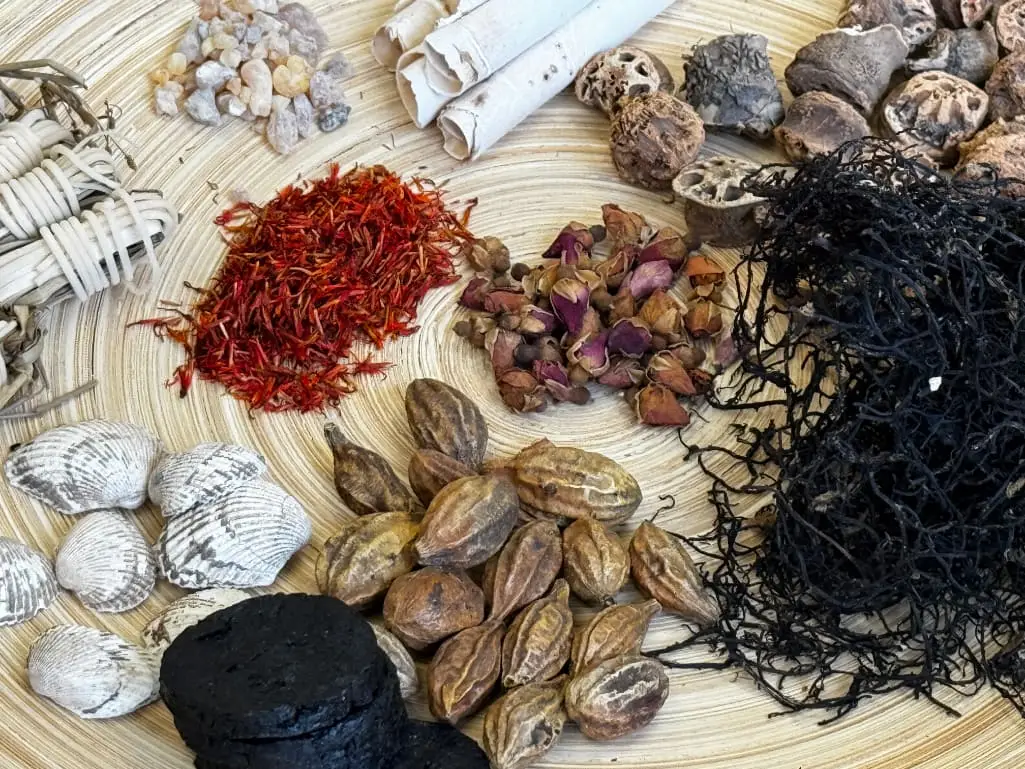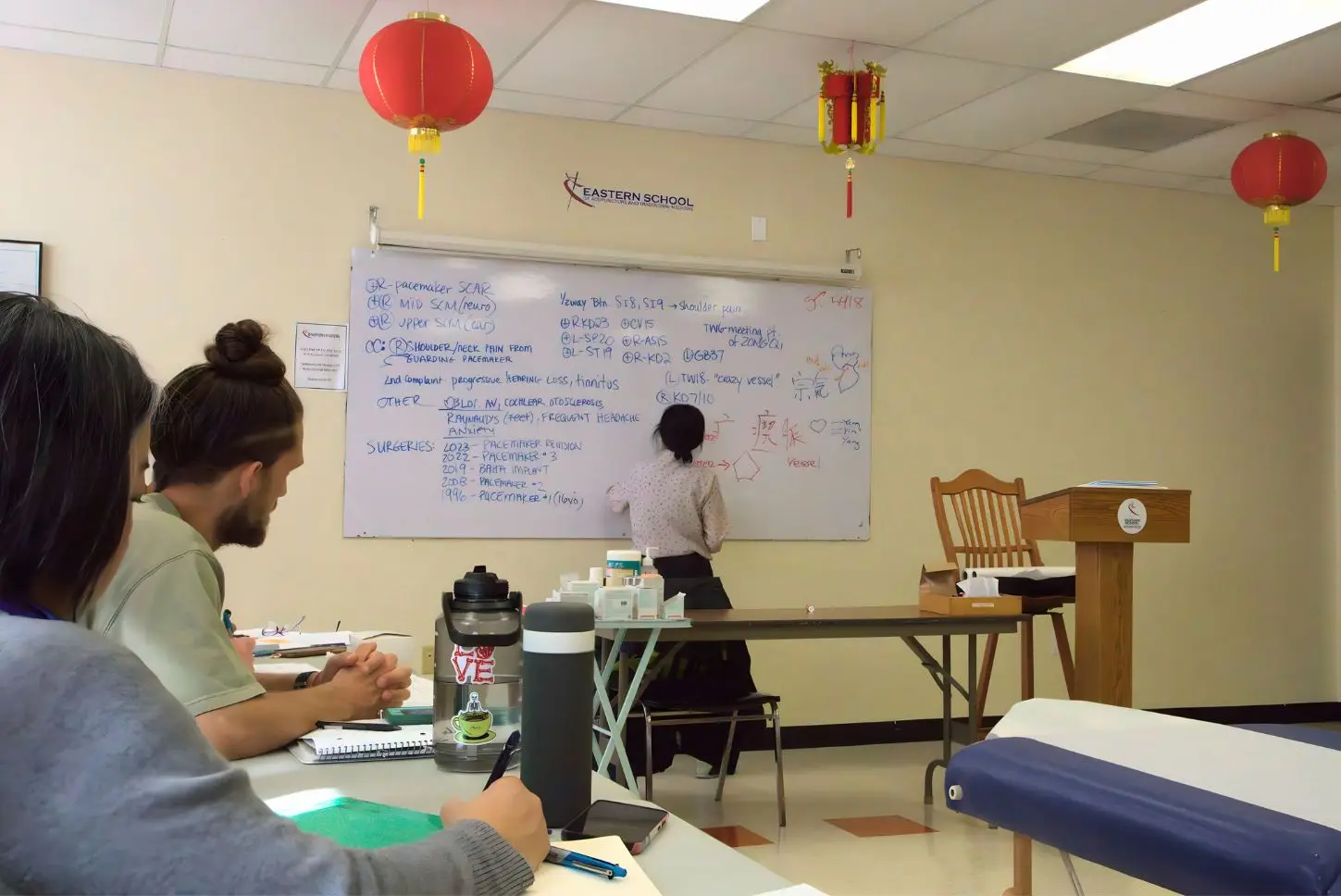The Eastern School of Acupuncture and Traditional Medicine’s academic framework distinguishes it among schools for acupuncture through a carefully structured curriculum that balances traditional knowledge with modern clinical practice.
The success of ESATM is ultimately reflected in its alumni achievements. As graduates establish practices and contribute to the evolution of healthcare, they carry forward the school’s mission of providing skilled practitioners who enhance community well-being through traditional healing practices.
Acupuncture, deeply rooted in Eastern traditions, complements modern healthcare by focusing on the body’s essential balance. Acupuncture and Traditional Chinese Medicine (TCM) offer a unique, holistic perspective on health, emphasizing the interconnectedness of all aspects of the body. This practice, refined over thousands of years, provides a complete form of medicine with a time-tested ability to treat a wide range of conditions—mental, physical, internal, external, and dietary. Working primarily or adjunctively with contemporary Western medicine, acupuncture offers a powerful means to restore harmony and balance within the body.
Acupuncture is not merely a complementary therapy; it is a full and complete system of medicine capable of addressing numerous health challenges. Whether managing chronic pain, digestive issues, stress, or dietary imbalances, acupuncture has a proven track record of offering effective solutions. It also enhances and complements the outcomes of other medical treatments, fostering more holistic and long-lasting healing for patients.
In today’s rapidly evolving healthcare environment, there is a growing recognition of the need for integrative approaches that address the whole person, rather than just managing isolated symptoms. Acupuncture plays a crucial role in this approach, offering comprehensive care that promotes wellness and prevention while addressing health issues on multiple levels. As more individuals seek alternatives to conventional treatments, acupuncture practitioners are uniquely positioned to offer solutions that align with the body’s natural rhythms.
At the Eastern School of Acupuncture and Traditional Medicine (ESATM), we believe that integrating both historical wisdom and contemporary Western medicine creates the most comprehensive healthcare approach. Our educational philosophy reflects this belief, guiding our students to develop a holistic understanding of health that honors both the past and the future. We value excellence and compassion as foundational principles in our education. These values are woven into every aspect of our training, ensuring that our students not only master the technical skills required for effective practice but also cultivate a deep sense of empathy and care for their patients.
Through your training, you will not only learn the rich history of Eastern healing practices but also engage with contemporary Western medicine, preparing you to be a skilled practitioner who can work primarily or adjunctively with other healthcare providers. By choosing to study acupuncture, you are joining a growing movement that embraces the best of both Eastern and Western medicine. You will be equipped with the knowledge and skills to expand treatment options for patients, collaborate across healthcare disciplines, and contribute to a more patient-centered, healthcare system.
We are excited to support you as you develop into a compassionate, skilled practitioner who can make a meaningful impact in the lives of those you serve. Thank you for embarking on this transformative journey with us.
– Dr. Ilona Abitbol, DAOM, L.Ac.
The Eastern School of Acupuncture & Traditional Medicine Master’s in Acupuncture program is 2,512.5 hours in length. A commitment of as little as three years is required to complete your qualifications. The program is designed to meet the needs of working adults. Acupuncture classes meet one afternoon/evening per week and on weekends, both Saturday and Sunday.
The design of the acupuncture program is to provide the highest standard of acupuncture education. In addition, the training also provides an educational foundation in the Western biosciences, which will assist the acupuncturist as a healthcare professional.
The Eastern School of Acupuncture & Traditional Medicine’s unique curriculum is organized thematically. Modern research has shown that adult learners absorb information best through hands-on learning activities. Thus, what students learn in theory acupuncture classes is reinforced in clinical work. This creates links that aid students in retaining theoretical knowledge and in understanding its practical application.
The core curriculum of The Eastern School of Acupuncture & Traditional Medicine acupuncture program includes a thorough grounding in the principles of Anatomy, Physiology, Pathology, as well as the fundamentals of TCM, including Meridian Pathways, Point Location, and Pulse and Tongue Diagnosis. Another educational objective for the Eastern School of Acupuncture reflects the belief that the best practitioners are often those who have a working knowledge of several different acupuncture modalities. To that end, the core curriculum also includes exposure to various schools of thought, such as TCM and Japanese styles.


Acupuncture and Chinese herbal medicine exist as historical counterparts that often intersect and combine to provide medicine that philosophically embodies the basic principle of yin/yang. Acupuncture, using needles to puncture the skin to affect the internal processes of the body, is balanced by the working of Chinese herbal medicine, which improves health from the inside out. Chinese herbal medicine has a long history of evidence supporting its effectiveness in treating diseases, which can serve as a favorable alternative to modern medical interventions and pharmaceuticals.
Students will study and examine clinical cases from our clinic, as well as cases from their own practices, and learn to diagnose, understand, and treat conditions from a Chinese herbal perspective. Our excellent herbal faculty brings their extensive knowledge and experience to the classroom and clinic to help students learn the many possibilities in the practice of this ancient art. Learning Chinese herbology can be challenging, but it is also enjoyable! Begin this lifelong learning journey with the Eastern School and join the many practitioners and scholars of this medicine that will continue to shape the way that we live today and in the future.
As it is only offered as a part-time program, financial aid is not available. Check with the finance office about available monthly payment plans.
For more information about the Chinese Herbal Medicine Program, please contact the admissions office or visit the links below.

